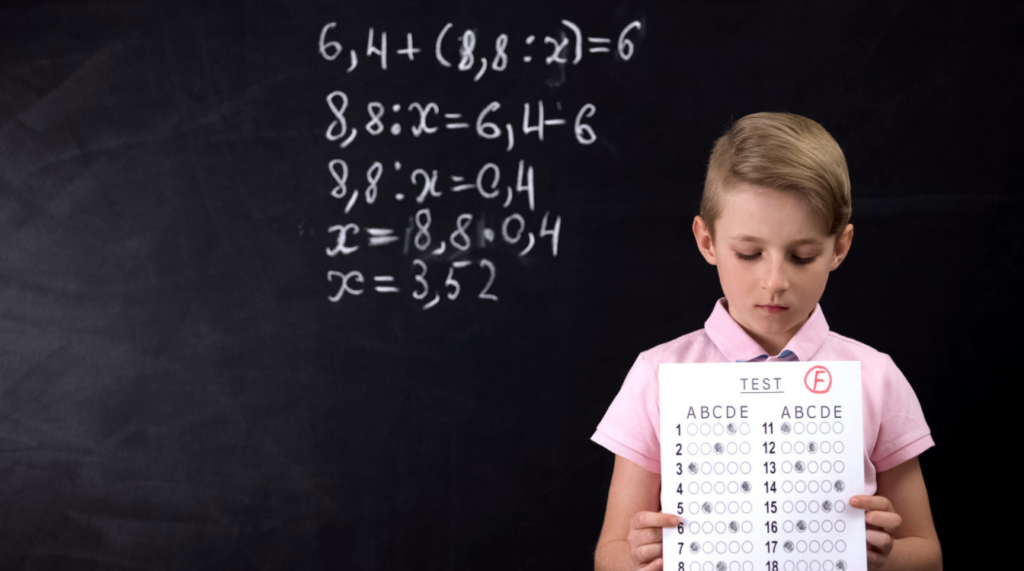…And why they don’t count for everything.
Many parents feel anxious when they find out that their child must sit the ISEB Pre-Tests, with increasingly high levels of tension as the date of the Pre-Tests draws near. Mixed messages circulate about how much weight the ISEB Pre-Test results carry, with some schools saying they are not worth preparing for, and others saying that your child won’t get an interview without excellent test results. To make matters more confusing, the scores aren’t shared with the parents, nor do secondary schools indicate the marks they are looking for. Understanding how the ISEB Pre-Tests fit into the secondary schools’ entrance process is key to keeping the right perspective and managing the emotional wellbeing of your preparing child.
Here are five commonly-held myths that need to be debunked in order to understand the ISEB Pre-Tests in the right context:
1. The ISEB Pre-Tests count for everything.
As the founder of Peak Prep, I spend much of my time talking with Head Teachers, Admissions Departments, Heads of Academics, and Prep School teachers. Not once have I heard anyone say that the ISEB Pre-Test results count for everything. They are merely a helpful part of the selection process. Acting as a basic indicator, the results give secondary schools an idea of which candidates will thrive in the academic environment of their school.
2. It’s all over if your child has a ‘bad day’ on test day.

One of the commonest questions I hear about the ISEB Pre-Tests is the dreaded, “What if they have a bad day?”. Whilst it’s true that your child will only sit the Pre-Tests once, (with the results shared amongst all the applied-for schools), it’s not generally true that a bad day eliminates them from opportunities to interview that would otherwise have been open to them. Your child’s current teachers have a good idea of whether your child will fit in (academically) at a prospective senior school. If you’re not sure, go and talk to your Head Teacher and other staff members that care for, and teach, your child. They should be candid about your child’s ability, and will be an invaluable when considering your child’s secondary school success. Should your child perform particularly badly on the day of the Pre-Tests, your current Head Teachers can vouch for your child, and provide reports to prove that the Pre-Test results were an anomaly. Believe it or not, secondary schools do understand the concept of a ‘bad day’ and will be reasonable in their considerations!
3. Your child cannot progress to interview without top scores.
See above, but also consider that almost every school, (certainly the ones I’d want to send my child to), will be looking for a diverse set of entry applicants, not just the top-dogs of the classroom. Therefore, you can trust that, although they use the scores from the Pre-Tests to eliminate children who simply won’t keep up, the results are only a (small) part of the picture when deciding who to interview.
4. References from your child’s Head Teacher are secondary to the results.
This myth couldn’t be further from the truth. Most secondary school Admissions Departments put a lot of weight on the words written by Head Teachers about your child. Knowing that everyone is a winner when a child ends up at just the right school for them, the references sent from your child’s prep school will be implicitly trusted. A reference will ‘flesh out’ the numerical information received through the Pre-Tests. Details about the character of your child, their learning style, their social skills, and extra-curricular interests all make up the reference letter. You can rest assured that if your child is a good, general fit for a secondary school, they will certainly be interviewed regardless of their Pre-Test scores. I’ve had it on good authority several times over that Head Teacher-to-Head Teacher references are by far the strongest indicator as to whether your child gets invited for an interview or not.
5. Selective secondary schools only want academic kids.

Again, this is entirely untrue. Whether you’d want to send your child to a hot-house of identically brilliant geniuses is another question, but schools understand that children need more than just classroom intelligence to be world-ready. Neither school nor parent want a child to be bottom of every class despite their best efforts, (hence the cut-off points referred to in Myth no.3), but most schools exhibit real and admirable balance in selecting a cross-section of capability amongst their students. Current thinking confirms the idea that diversity amongst peers leads to more rounded adults, and the schools are resultantly keen to reflect this at entrance level.
For all you aspiring parents out there, desperate for your child to at least get an interview, I hear you – I was one not so long ago! I remember thinking that I’d hardly pass the ISEB Pre-Tests were I to sit them, let alone be able to answer some of the following interview questions, (“What makes art art?”), so how on earth would my 12-year-old fare? How could I expect him to remember the method for dividing fractions if he couldn’t even remember to pick up his socks? However, I was so encouraged as I found out more and more about the process, often from ‘the horse’s mouth’ via Admissions Departments and Head Teachers, knowing that whilst the ISEB Pre-Tests play a very important role in the entrance process, it is only a part, and often a small one, despite its seeming significance.
(To help your child approach the tests calmly, have them familiarise and prepare ahead of time. Little & often is the recommended way to revise so that anxiety levels are kept to a minimum, and the right perspective is kept. I created Peak Prep to help your child, but there are several websites and loads of books out there which help too. For a free trial of Peak Prep, click here.)

